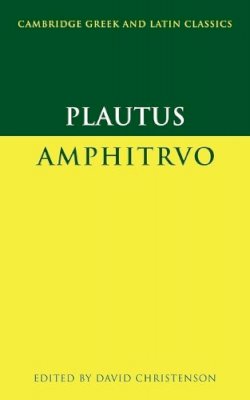

Instead, there is much more of a focus on the home and the family unit – something that the Romans, including Plautus, could easily understand and adopt for themselves later in history.įather-Son Relationships in Greek New Comedy and Plautus Sutton is that New Comedy, in comparison to Old Comedy, is “devoid of a serious political, social or intellectual content” and “could be performed in any number of social and political settings without risk of giving offense.” The risk-taking for which Aristophanes is known is noticeably lacking in the New Comedy plays of Menander. The most notable difference, according to Dana F. Greek New Comedy differs greatly from those plays of Aristophanes.

Cleon was a major political figure of the time and through the actions of the characters about which he writes Aristophanes is able to freely criticize the actions of this prominent politician in public and through his comedy. Simply the names of the characters in this particular play of Aristophanes make a political statement. For example, he names his two main characters “Philocleon” and “Bdelycleon,” which mean “pro-Cleon” and “anti-Cleon,” respectively. In Aristophanes’ The Wasps, the playwright’s commentary is unexpectedly blunt and forward. Comedy and theater were the political commentary of the time – the public conscience. It has a very good idea about the world in which it functions and analyzes that world accordingly. This is the main component of Old Comedy. Each of these plays and the others that Aristophanes wrote are known for their critical commentary about politics and society. Aristophanes, a playwright of 5th century Athens, wrote plays of political satire such as The Wasps, The Birds and The Clouds. The ancient Greek playwright that best embodies Old Comedy is Aristophanes. This needs to be done to discover their similarities to Plautus' works. It is necessary to compare the Greek Old comedy with the Greek New Comedy of Menander. Plautus’ Influences: Greek Comedy, Menander, and Aristophanes Greek Old Comedy 3.1 The Middle Ages and early Renaissance.1.8 Plautus: Copycat or Creative Playwright?.1.7 Understanding of Greek By Plautus’ Audience.1.3 Father-Son Relationships in Greek New Comedy and Plautus.1 Plautus’ Influences: Greek Comedy, Menander, and Aristophanes.


 0 kommentar(er)
0 kommentar(er)
